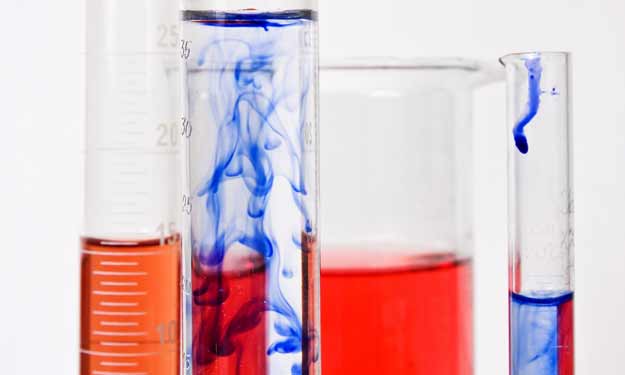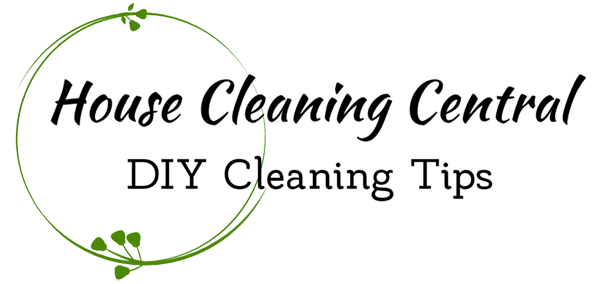Homemade Chemical Free Cleaning Tips

Cleaning Around the House Without the Use of Chemical Cleaners.
Can We Clean Without Chemicals?
Many of the commercial cleaners that I’ve used over my lifetime have been toxic, petroleum based and just plain hazardous.
I shudder to think about it, really.
Granted, I haven’t grown a third eye yet, but exposure to so many toxins and hazardous materials can damage our health, our children’s, pets and even our grand children’s health, not to mention destroy the environment too.
I’m not a scientist, but it’s important to me to understand the chemicals I use in my cleaning products because I DO clean a lot. I also teach other people how to clean, and no one wants to be exposed to any more toxins than they have to.
According to the dictionary, water is a chemical substance with the formula H2O. By scientific definition then, even plain water is a chemical.
Water is a VERY good chemical, it’s the best solvent there is because almost every substance dissolves in water.
So for those that aren’t paying attention, the answer is no, you can’t clean without using chemicals.
Dirt and stains themselves are chemicals, and we use chemical cleaning agents and solvents like water to remove them.
Everything we hear, see, smell, taste, and touch involves chemistry and chemical matter.
Natural Cleaning Products Should Not:
- Will not harm the environment
- Will not harm people
- Will not harm pets/animals
But strictly speaking, there’s nothing under the sun that’s 100% safe. Even water and air are not safe if not used as directed.
It’s also important to understand that not all toxic chemicals are inherently bad either.
A great example: Lye is a toxic, caustic (burns skin and eyes) chemical used to clean drains. It’s not good to have it lying around- that’s for sure!
But did you also know that lye is used to make soap, one of the most basic, natural and useful products around for centuries? It’s true. Fat mixed with lye makes pure and simple soap.
Our ancestors may have stumbled upon this by accident, but my point is that the knowledge of what chemicals are good cleaners, and what kinds of grime each chemical is good for, will allow you to make better decisions of what and what NOT to use.
So, we’ve already established that water is a chemical, and a good chemical at that, so that kind of makes the chemical-free part of the point rather moot, right? We need to clean with chemicals, just avoid any super-bad ones.
How to Clean Naturally
- Avoid extremely toxic or dangerous chemicals altogether.
- Use as basic and natural a cleaning agent as possible.
- Don’t use more of a cleaning product than I need to do a good job.
- Use the right product for the job, at the right time that I need it.
- Know WHAT I’m using and WHY I’m using it.
- Don’t buy into the hype on any cleaner, green or not!
Stains come in many different shades, and so do the appropriate cleaners to use. I avoid exposing myself to toxins by knowing what works on each type of stain, and not throwing a bunch of chemicals at the various types of grime I’m trying to clean.
I can’t always avoid dangerous cleaning chemicals altogether, but understanding what I am using and why I am using it makes all the difference in being able to select non-toxic products that work effectively.
Be smart; be safe, nontoxic and CLEAN!
Using Green Homemade Cleaners
Amazingly, some of the most common household substances like: baking soda, salt, lemon juice, hydrogen peroxide, (among many others), are very effective “green cleaners” and do just as good of a job cleaning as any commercial “green cleaners” or regular toxic chemical cleaners.
These basic natural products are far less expensive and can actually contain the same ingredients that are used in the commercial “green” products that you pay a premium for.
One example is “oxy cleaners”, which promote that the “oxy” is what gives it the cleaning power. Well, the “oxy” is oxygen bleach (sodium percarbonate) which does the same job as hydrogen peroxide.
I have long used regular 3 percent hydrogen peroxide to remove many types of carpet and laundry stains. At less than $2 per bottle, just think of all the savings I’ve accumulated throughout the years- ka’ching!
You can call me thrifty, or even cheap but after I share my secrets, you’ll know that I’m just plain smart. Here’s what you need to know so you can be smart too.
The Best Natural Household Cleaners
There are 4 common natural products that you should have on hand because they work wonders and are safe (as cleaning products go) and effective cleaners too.
- White Vinegar
- Baking Soda
- Hydrogen Peroxide
- Oxygen Bleach
White Vinegar
Vinegar is made by yeast or bacteria fermenting sugars into acetic acid.
Plain white vinegar is very inexpensive and almost a miraculous kind of green cleaner. Vinegar is an organic mild acid that disinfects and deodorizes, it’s nontoxic and is a multipurpose cleaner because you can use it all over the house.
Vinegar smells a little- vinegary, but the odor goes away when it dries.
Use Plain White Vinegar to:
- Kill mold and mildew
- Eliminate odor from your washing machine
- Wash windows
- Clean grout
- Clean a coffee maker
- Remove hard water deposits from faucets
- Unclog a drain
- Clean a dishwasher
- Clean wood floors
- Clean linoleum floors
Warning: DO NOT use white vinegar on natural stone, it will etch and damage the surface due to its acidity.
Baking Soda
Bicarbonate of soda is a naturally occurring mineral called Nahcolite. It can be mined and it is also man made.
Baking soda is not only necessary for your cooking pantry, but is vital to your green cleaning arsenal.
I use baking soda ALOT when cleaning. It’s an excellent deodorizer and it is an odor absorber. It is a mild abrasive and it softens wash water and clothing, so I use it in place of fabric softener for my daughter’s sensitive skin.
Use Baking Soda to:
- Remove tarnish and clean silver
- Removes pet urine odor
- Deodorizes carpet
- Eliminates cigarette odors
- Neutralizes skunk odor
- Used in seasoning a cast iron pan
- Cleans grime and soap scum from shower doors
- Deodorizes memory foam
- Great laundry booster
- Shower cleaning
Hydrogen Peroxide/Oxygen Bleach
Hydrogen peroxide is water with an extra oxygen molecule.
Hydrogen Peroxide is created in the atmosphere when ultraviolet light strikes oxygen in the presence of moisture.
When hydrogen peroxide is mixed with other ingredients and/or applied to a stain, the extra oxygen molecule is released. This extra oxygen creates a bleaching or whitening effect; and results in an effective stain remover for the item that is being cleaned.
As I mentioned earlier, hydrogen peroxide is the “secret” ingredient in all those “oxy” cleaners. Why not just cut to the chase and save yourself some cash by purchasing 3% hydrogen peroxide for removing small stains yourself?
Oxygen bleach is sodium percarbonate, which is washing soda or soda ash mixed together with hydrogen peroxide. These chemicals are oxidizers, just like hydrogen peroxide, that are stable in a powder form.
When hydrogen peroxide liquid is applied or oxygen bleach (sodium percarbonate) is combined with water, oxygen is released. This chemical reaction removes the stain, breaks up grime and brightens the fabric.
Use Hydrogen Peroxide/Sodium Percarbonate to:
- Remove stains from blankets
- Eliminate greasy food stains from laundry
- Get rid of annoying deodorant stains
- Remove dried blood stains
- All-purpose laundry booster
- Remove stains (organic and dye) from carpet
- Eliminate ink marks from linoleum
- Safely clean your mattress
- Remove yellowing from your laundry
What is in Your Cleaning Products?
I do think that when your health is concerned, you need to read labels and be aware of what you’re cleaning with. If a natural product cleans as well as a commercial product and also costs much less, then you should use it.
So be aware while you clean your house from top to bottom, and inside and out. Stay green, clean and be healthy.

